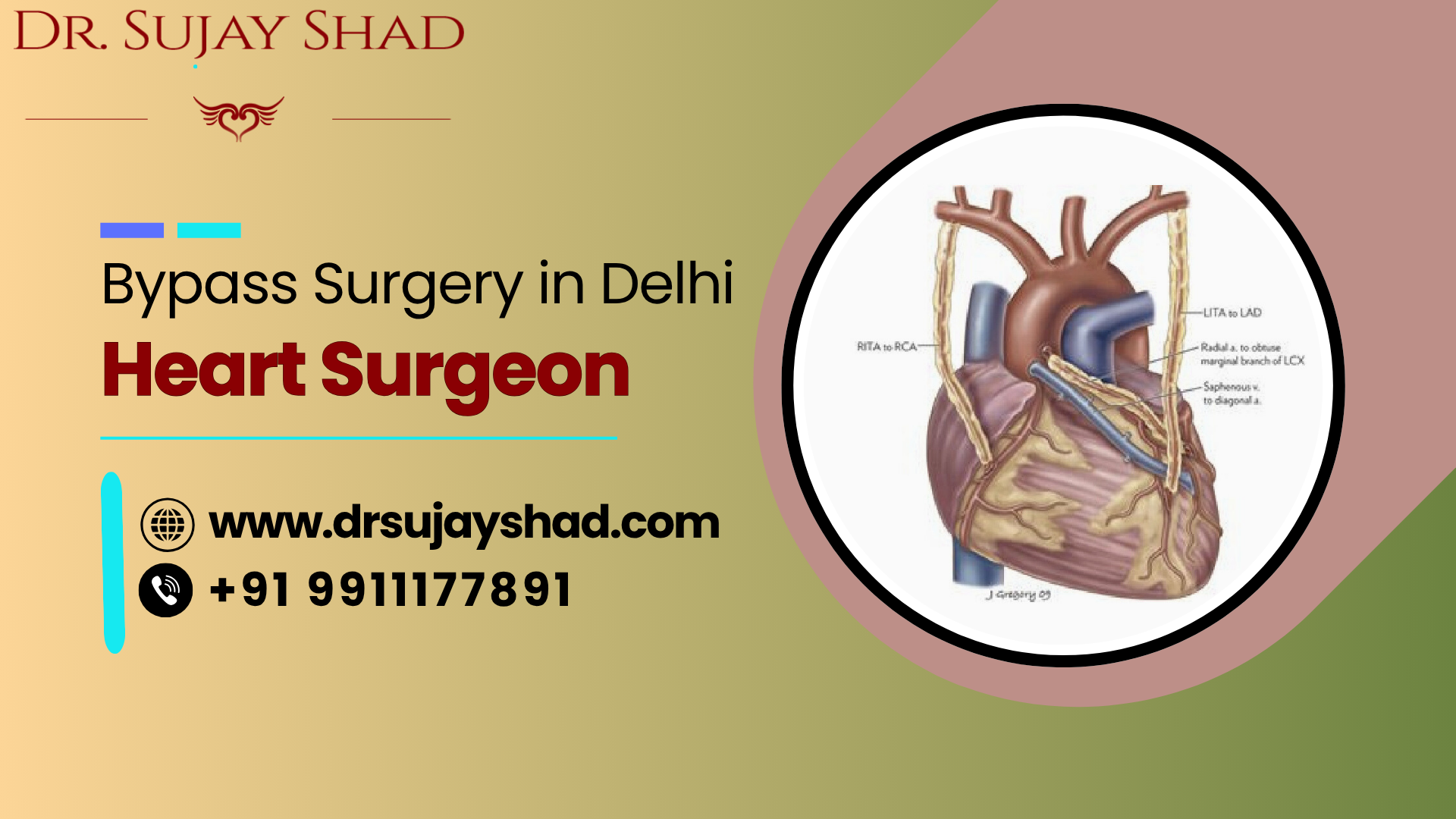FAQs on Coronary Artery Bypass Grafting (CABG) Surgery of Heart

CABG surgery is usually recommended for those having severe coronary artery disease. It is recommended in people with symptoms repeatedly showing up. This includes- poor heart functioning; diabetes; complex coronary anatomy; or angina or heart attack. This surgery is medically also known as heart bypass surgery. It helps restore blood flow by correcting blockages in the heart. Any blockages in the arteries can affect the blood flow, can cause heart attack or other symptoms. With Bypass surgery in Delhi, the patient can restore the flow of blood in their arteries. It uses blood vessels from other parts of the body to construct a detour near the blockages.
Commonly asked question about Coronary Artery Bypass Grafting:
-
What is Coronary Artery Bypass Grafting (CABG) Surgery?
CABG is a surgery to detour oxygen-rich blood supply to the heart muscles in cases of narrowed or obstructed coronary arteries.
-
What to Expect Before Coronary Artery Bypass Surgery?
The patient will go through a pre-operative evaluation involving blood tests, EKG, chest X-ray, echocardiogram, angiography, and cardiac catheterization. Before the day of surgery, the patient needs to follow the surgeon’s instructions on diet and fasting, medication intake, and what to avoid in routine.
-
How Is Coronary Artery Bypass Grafting Surgery Performed?
CABG surgery is carried out under the effect of general anesthesia. A long, middle chest incision is made to split the breastbone and spread open ribcage to expose the heart.
The heart is stabilized with or without a heart-lung machine and the grafting is done on either beating or non-beating heart. A section of a healthy blood vessel of the chest or leg is taken as a graft.
The graft’s one end is attached to the aorta and the other end below the blockage and this finally reroutes the blood flow around the blocked/narrowed artery. An incision is suture closed after the heart is checked to be working well.
-
What Are the Different Types of Coronary Artery Bypass Grafting Surgery?
CABG surgery procedures can be traditional, minimally invasive, off-pump, or robot-assisted. A cardiac surgeon can determine the best-suited type of CABG after considering the patient’s age, weight, build, location/extent of plaque buildup, and existing illness like hardened arteries or lung disease.
-
What to Expect After Coronary Artery Bypass Grafting Surgery?
Following the CABG surgery, the patient has to stay in the ICU for a few days and when the condition stabilizes, the patient will go to a recovery room and be closely monitored for vitals. When everything is normal, the patient is discharged.
The usually reported side effects of the surgery during recovery include itching/irritation at the incision site; swelling in the area from which the graft was taken; muscle ache/tightness in the upper back or shoulder; appetite loss/constipation; fatigue, mood swing, or depression; trouble in sleeping; and chest pain around the bone incision.
-
What Precautions to Take After Coronary Artery Bypass Grafting Surgery?
Following CABG surgery, the patient must strictly follow the prescribed medication course, gradually increase activity level, take proper incision care, and avoid driving for several weeks. Regular follow-up appointments and open communication with the surgeon are crucial to ensure recovery is smooth.
For keeping the heart healthy for years to come, the patient’s long-term care plan must include switching to a heart-healthy lifestyle involving a heart-healthy diet, regular light-impact exercise, stress management, proper sleep, and no smoking or alcohol abuse.
-
What Risks Are Involved in Coronary Artery Bypass Grafting Surgery?
The complications are highly uncommon with CABG surgery when performed by a skilled and experienced cardiac surgeon on a suitable candidate. However, there are potential risks associated, especially if the patient does not adhere to proper pre- and post-surgical instructions.
The risks include anesthesia-related reactions, wound infection and bleeding, stroke, fever, pain, or heart attack. The use of heart-lung machines also poses some risks in elderly patients, diabetics, smokers, and those with failing kidneys, lungs, or peripheral vascular systems. These include memory loss, difficulty concentrating, and blood clots.
-
How Long It Takes to Recover from CABG Surgery?
The recovery period of CABG surgery is typically 6-12 weeks. Most patients resume their light, normal routine activities in 2-3 weeks, sexual activities within 6 weeks, and driving after 3-8 weeks. The exact time taken to fully recover depends on the patient’s general health and post-operative care.
-
What is the Duration of CABG Surgery?
The CABG surgery typically lasts for around 3-4 hours. Based on the complexity, CABG cost in Delhi is recommended by the doctor.
-
Which Artery is Most Commonly Used for Coronary Bypass Grafts?
Many vascular conduits are used often such as radial artery (RA), internal thoracic artery (ITA), right gastroepiploic artery (RGEA), and saphenous vein (SV).
Consult an Expert Today For Details.
Sir Ganga Ram Hospital, has the best cardiac surgeon and Heart Doctor in Delhi, Dr. Sujay Shad, who has great expertise and experience in cardiac surgeries like CABG.
The suitable candidates for CABG usually present optimal results. They obtain a healthier heart, lasting for a decade or more with an active and healthy lifestyle. For more details on this surgery, meet Dr. Sujay Shad today.
- Seo
- Art
- Causes
- Crafts
- Dance
- Drinks
- Film
- Fitness
- Food
- Games
- Gardening
- Health
- Home
- Literature
- Music
- Networking
- Other
- Party
- Religion
- Shopping
- Sports
- Theater
- Wellness
- Business & Money

